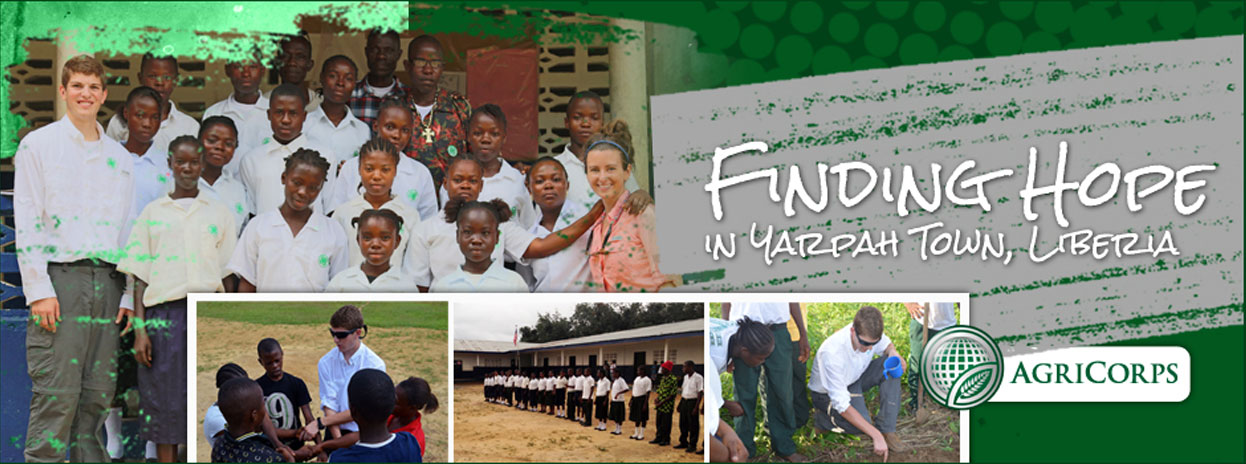On the plane ride to Monrovia, I was seriously questioning how much we could accomplish on this relatively short-term stay in Liberia. After researching some of the challenges the people of Liberia were facing, I was intimidated. What can two college kids do in only three weeks that will make any sort of difference? 26 days later, as our plane took off from the Monrovia airstrip, I was still greatly concerned with the challenges that the people of Liberia face, but I was now confident that they could rise out of it – if its led by it’s young people.

Joenelle Futrell and I spent approximately three weeks in Yarpah Town, Liberia on a trip with Agri Corps. Our mission was to start a 4-H Club, teach curriculum from the School Garden Handbook, and begin a garden at the school. Out of all the things to be nervous for – safety, living conditions, language barriers, food, showering with a bucket, communication – I was most anxious for the hour and a half that we would spend teaching each day. Maybe it was never teaching to an audience like this before; maybe it was because teaching is what would determine our success or failure; maybe it was because I still didn’t even know if the kids would be able to understand what I was staying; it could have been a combination – but as we walked into a concrete block room with wooden desks and 25 new 4-H members, I was nervous.
Some days those nerves became real as we encountered challenges. Our students were between fifth and seventh grade, with ages ranging from 12 to 25, and a large portion of the class struggled to read. Before we arrived the teaching model was almost completely lecture, memorize and repeat. This had been engrained so much, that students never learned to read – they instead just copy down ‘shapes’ and then repeat what they are told. We found critical thinking absent from the student’s minds. They weren’t even allowed to ask questions. Moving away from this was difficult. The first time we took the students outside, we could tell the students had never done something like this; they were excited. Feeling confident, we asked them to line up shoulder-to-shoulder, from tallest to shortest. We were astonished that the students couldn’t do it.
However, as we continued teaching, we started to see progress. We had six students step up, give a speech in front of their classmates, and win elections as our 4-H student officers. After our lesson on planting, our students led us to find a suitable site to break ground on the garden – our first evidence of critical thinking. On day one, we struggled to have any students speak or answer questions in class; now we were having trouble keeping them quiet. When we arrived, they had difficulty lining up tallest to shortest. After two weeks our 4-H members were tackling the human knot with strategies I hadn’t seen before. With only small changes to their learning environment, our students quickly made leaps in their education; they began to thrive.
I didn’t have a reason to be nervous – teaching was soon the most fulfilling part of my day. I am still anxious about the challenges that the people of Liberia face. 14 years of civil war has destroyed most of the country’s infrastructure – including the education system. However, I have a new found hope for the young people of Liberia. They are bright, talented, and capable. If we can provide them with an environment to learn and think critically, they will rise up and face these challenges.
Brennan Costello was the 2012-13 Central Region Vice President for the National FFA Organization. He spent 28 days in Liberia as an AgriCorps volunteer. He currently attends the University of Nebraska where he studies Ag Business.




